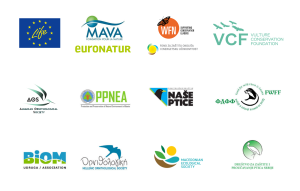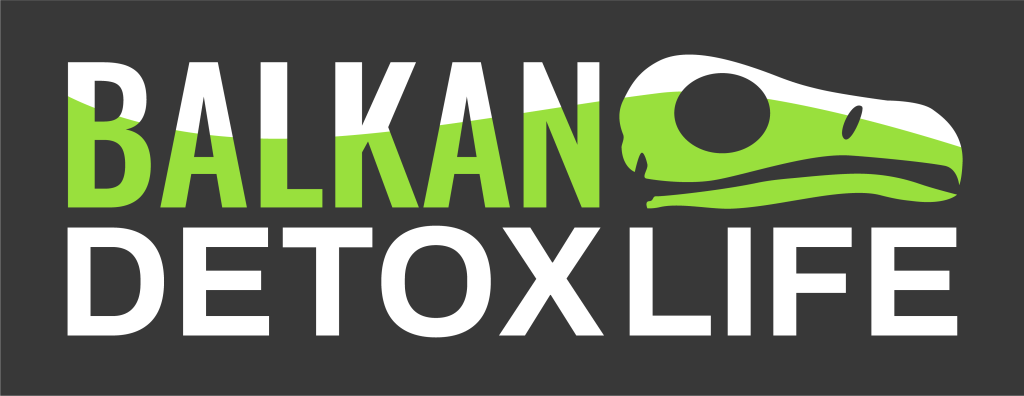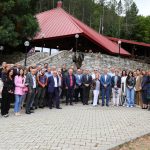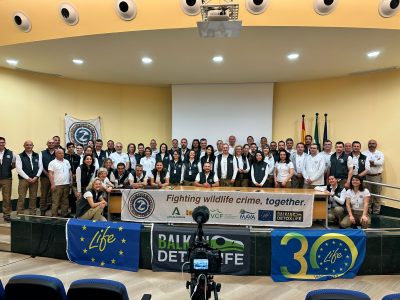
A total of five participants from various relevant government institutions and organizations from the country took part in the third training organized by the Wildlife Crime Academy, which took place last week in Malaga (Spain). Participants from North Macedonia trained together with 39 other participants from nine European countries and gained qualifications in this highly advanced and specialized field. The training aims to assist representatives of relevant institutions in prosecuting and convicting individuals who harm wildlife, serve as a deterrent to potential offenders and ultimately minimize wildlife crimes, thereby saving the lives of endangered species.
The training was organized by the Vulture Conservation Foundation and the Junta de Andalucía as part of the EU-funded “BalkanDetox LIFE” and “LIFE with Vultures” projects, as part of a series of three intensive trainings of the Wildlife Crime Academy. Not only has it filled knowledge gaps, but it has also transformed attitudes towards wildlife crime, elevating it as a serious crime among law enforcement.
Tailored to professionals from various academic disciplines working in the field of protection, law enforcement and forensic science, the training helped participants acquire the necessary skills to conduct investigations, manage teams and increase the motivation of relevant stakeholders. Following internationally recognized procedures from the Junta de Andalucía and a program designed by specialists with over 15 years of experience, including contributions from Europol, the Wildlife Crime Academy courses are at the forefront of the most up-to-date knowledge and practices.
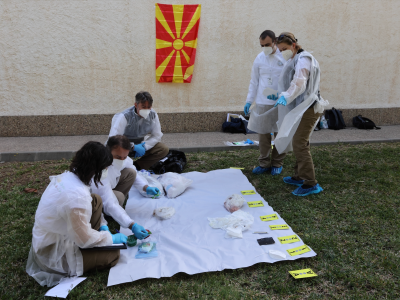
“By combining crime scene investigation (CSI), forensic science and court processes, we have achieved an 80% reduction in illegal wildlife poisoning incidents in Andalusia over a 15-year period. With the right procedures, persistence and cooperation, we are confident that our participants can achieve similar results in their countries”, said Iñigo Fajardo, head of the Department of Protected Species in the Junta de Andalucia and professor at the Academy of Crime Against Wildlife.
During the third training, participants honed their skills in profiling suspects and understanding criminal behavior through practical exercises on criminal signatures and case linking. The theory covered topics such as forensic psychology, crime analysis and criminal profiling. Participants were educated about evidence of criminal behavior and how intelligence services can prevent crime and assist in investigations, particularly when it comes to organized crime and international networks involved in wildlife poisoning and illegal trade.
“Our country is faced with ongoing environmental crime for which, unfortunately, there is no effective and thorough investigations from the side of the appropriate authorities. This academy has provided us with a range of tools to strengthen our national capacities on this issue. However, this is just the beginning, as collective efforts and determination are going to be needed to eradicate wildlife crime in North Macedonia,” said Arta Starova, project assistant at the Macedonian Ecological Society and participant of the Wildlife Crime Academy.
During the first and second training courses, participants were educated on how to conduct systematic check-ups, collect, and secure evidence. In addition, the use of canine units and the identification of fraud through body language were covered.
Forensics was also included as a key part of the investigation and evidence was analyzed to develop objective findings that could reveal the causes of species deaths and even help prosecute the perpetrators. WCA researched in key areas including forensic entomology, unconventional sampling and interpretation of toxicology results.
“Europe received 44 new experts from nine countries, for research and analysis of wildlife crime. We are impressed by their unwavering commitment to the fight against wildlife crime and believe their expertise will make a real difference in preventing illegal mortality and supporting conservation efforts for endangered species. Our Wildlife Crime Academy participants have already received the first conviction for illegal wildlife poisoning in Cyprus,” said Jovan Andevski, program manager at the Vulture Conservation Foundation and coordinator of the Wildlife Crime Academy.
According to MES data, in the last 20 years in North Macedonia, at least 80 individuals of 5 different species have been poisoned, with the most affected being the Griffon vulture (>70 birds), and the other species that are very susceptible to this threat are the Egyptian vulture , the Imperial eagle and the Golden eagle. The use of poisons in the past has already led to the extinction of two species (the Bearded vulture and the Black vulture), and now both the Griffon vulture and the Egyptian vulture are facing such a threat.
